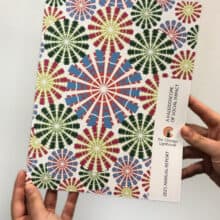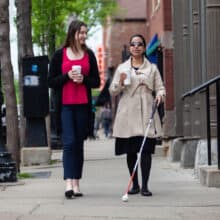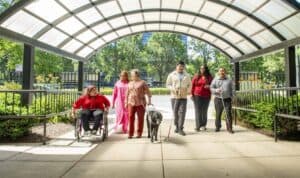Commentary: Making Brazil Accessible During the Rio 2016 Paralympics and Beyond
September 6, 2016
As someone with a disability, I have to constantly be on my feet and learn how accessible a place is even before I visit it the first time. I have to at least know the area’s layout, and have a general idea of where important places like restrooms, elevators, stairways and information desks are located. If going to the movies or a museum, it helps to know if these attractions have audio description or other accommodations for people with visual impairments.
Realizing the accessibility needs of people with disabilities just in time for the Rio 2016 Paralympic Games, Brazil’s Ministry of Tourism launched a guide for tourists with disabilities. Over 35,000 of these informational booklets were distributed throughout places like hotels, restaurants and other businesses. Officials hope that by providing these booklets, businesses will be better prepared to assist people with all types of disabilities.
Providing adequate accommodations is important, and so is keeping business personnel informed about best practices on assisting and accommodating people with disabilities. Even in the United States, where thanks to the ADA most public businesses are accessible, I have experienced situations when staff is unaware about available accommodations. Once, for example, a waitress told me the restaurant did not have a Braille menu, when in fact it was available, and I had used it before. On the other hand, I have had staff at other restaurants offer me a Braille menu as soon as they see my white cane. This makes me feel welcome and more at ease.
Brazil has taken a great step in the right direction with the launch of this booklet. If businesses follow the suggestions outlined in the manual, tourists with disabilities will feel more welcome, and this is especially important now that the Paralympics are in full swing. I hope these practices are followed by businesses beyond the Paralympics, because people with disabilities that live in Brazil and future tourists will also benefit from accessible establishments. As people with disabilities, it is also important to know what accessibility accommodations are available, and I hope that one day Brazil – and other countries –will develop a similar manual directed toward us.
People with disabilities are also consumers, and we have the right to enjoy and go to different places. With a few adaptations and considerations from businesses and the general public, places can become accessible and inclusive for everyone. If followed by business and other establishments, the newly launched booklet about tourists with disabilities in Brazil can go a great way in sensitizing business owners and the general public during the Paralympics and beyond. I hope one day other countries follow Brazil’s example, and make their environments more accommodating to people with disabilities. This, I think, makes good business sense for everyone.
What countries or popular tourist attractions have you found accessible as someone with a disability?
 Sandy Murillo works at The Chicago Lighthouse, an organization serving the blind and visually impaired. She is the author of Sandy’s View, a bi-weekly Lighthouse blog about blindness and low vision. The blog covers topics of interest to those living with blindness and vision impairments. Being a blind journalist and blogger herself, Sandy shares her unique perspective about ways to live and cope with vision loss.
Sandy Murillo works at The Chicago Lighthouse, an organization serving the blind and visually impaired. She is the author of Sandy’s View, a bi-weekly Lighthouse blog about blindness and low vision. The blog covers topics of interest to those living with blindness and vision impairments. Being a blind journalist and blogger herself, Sandy shares her unique perspective about ways to live and cope with vision loss.





